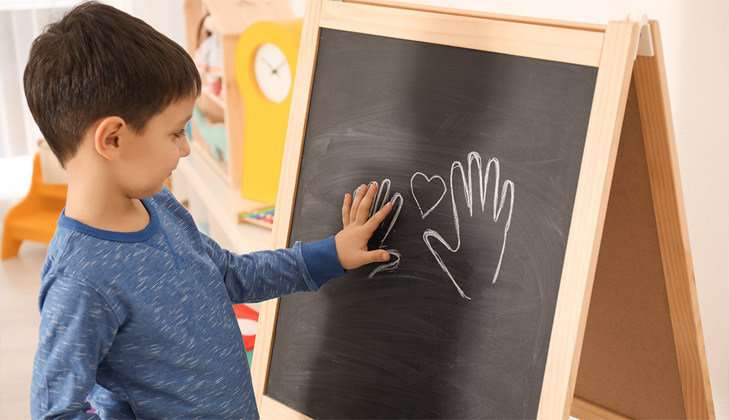
Dr. Marianne Jackson
As the COVID-19 situation forced the closure of schools and daycares, parents and children are adapting to life at home. For those parents of children on the autism spectrum, helping their kids transition to the new normal can be a bit more challenging.
But there are strategies that can help.
Dr. Marianne Jackson is a professor for the Psychology Department and the clinical director for the Focused Behavioral Services office at Fresno State. In honor of National Autism Awareness Month, Jackson shared five tips for how to care for a child with autism during the stay-at-home order:
- Create a daily schedule. Like many of us, children with autism often prefer to have some routine and predictability about their days. Use a format that typically works well for your child (e.g., pictures, photos, written words). If you can, establish at least one thing that is specific to that day of the week, as this will help your child to track what day it is. Try to alternate between the things they have to do and things they want to do. Post the schedule somewhere they can easily see it and show them what they are doing now and what is coming next.
- Build in fun. Ensure some time to follow your child’s lead and let them decide on the activity, or lack of one if they need some downtime. Do this in a way that they typically make choices (e.g. “what do you want to do” or “do you want to do______ or ______?”). It may also help to box up some of your child’s toys and rotate them in and out every few days. Ensure there are a few favorites in each box and this will help to keep them interested. When it comes to less fun activities that they have to do, try to make them fun by being silly or providing praise, tickles, a favorite toy or a snack for completing them, or even parts of them.
- Prioritize goals for the current situation. This may not be the time to take on lofty new goals that your child cannot use or practice right now. During this time, prioritize goals so that you don’t feel overwhelmed and try to make them relevant to what your child and family need right now. One ongoing goal that is often helpful is functional communication in a format that is best for your child (e.g. speech, vocal approximations, Picture Exchange Communication System, signs, etc.).
- Find a safe form of exercise that you can do together. Although our options are more limited, you and your child will benefit from a safe and appropriate form of exercise that you can do regularly. This may simply be a walk around the neighborhood (while observing social distancing), a dance party in the family room or kicking a ball around in the yard. Try to make it fun and allow your child to take the lead when they can and when it is safe to do so. In addition to the various physical and emotional benefits for us all, children with autism have been shown to exhibit less problem behavior, less self-stimulatory behavior, more task completion, more social behavior and better sleep patterns when they engage in more physical activity.
- Don’t forget some self-care. In this time of global crisis and dramatic lifestyle changes, it seems like self-care is often the last thing parents think about or have time for, but this is perhaps the time when it is most important. Try to find some moments for yourself and think about whether that all-important task you have to do is really more important than having a moment for yourself. If your child has some independent activities they can do with minimal adult interaction, try to build in some of these in each day to give yourself a bit of a break. Try to create or maintain good eating and sleeping patterns and get some activity where you can. These things may seem like the last thing you have time for, but they will pay off in our overall health and ability to deal with everything the world is throwing at us.
The Focused Behavioral Services office has continued to serve families who have children or adults with autism spectrum virtually. For more information please contact Dr. Marianne Jackson at mjackson@mail.fresnostate.edu or visit the Focused Behavioral Services website.





